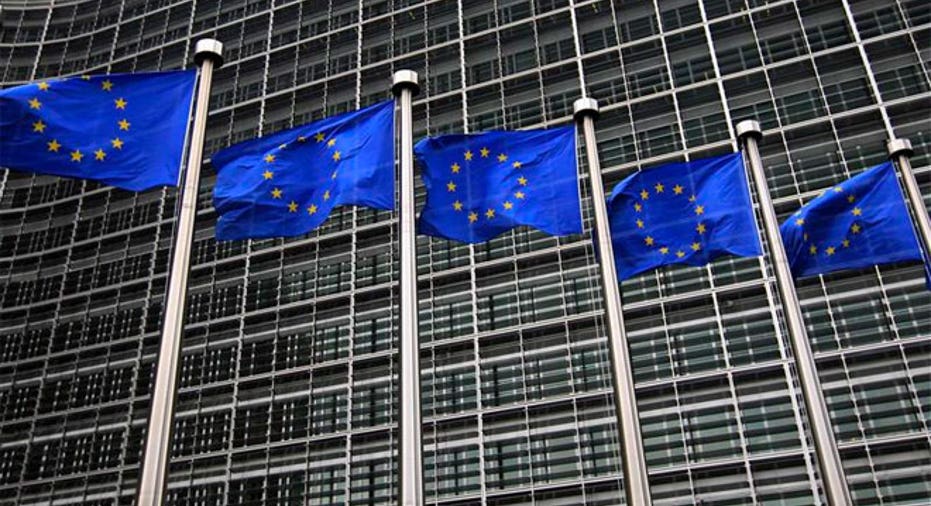EU Implosion Fears Rise After the U.K. Votes to Leave

BRUSSELS -- The British exit of the European Union after more than four decades of membership delivers a shock to the rest of Europe and the wider Western world.
The British people ignored the overwhelming weight of expert opinion about the consequences of leaving. They spurned the entreaties of their own prime minister and most of their elected representatives, as well as those of President Barack Obama and every other Western leader, and ignored the grim warnings of the International Monetary Fund and a vast majority of economists on the left and right.
With the U.K. outside the EU, coherent Western policy responses to common challenges become more difficult.
For leaders in the EU, the vote raises fears of further disintegration and opens a pathway out of the bloc that nationalist politicians in Netherlands, France and elsewhere will likely seek to follow. The vote creates another crisis in a bloc already coping with slow growth, terrorism and large-scale migration from an unstable neighborhood.
The referendum has already encouraged upstart political parties -- generally anti-EU, anti-U.S., and pro-Moscow -- to push for similar votes across the bloc. A new study from the European Council of Foreign Relations found these parties are lobbying to hold 32 referendums, which the think tank described as "a tidal wave of popular referendums."
The decision will change the EU's shape and character. Without the U.K., the bloc's second-largest economy, the EU will become even more dominated by the continent's largest economy, Germany. That in itself is an outcome unwelcome in Berlin. Northern European governments, including Germany, that largely prefer market-based solutions will lose leverage over southern economies like Italy and France that tend to be more protectionist and statist.
The EU is now left unbalanced in other ways: The U.K. is by far the largest economy in the bloc that doesn't use the euro, and its departure will leave the other eight members outside the eurozone deprived of a champion. Politicians in Sweden, the next largest, and elsewhere worry they will be overwhelmed by the euro states, which will make up 85% of the economy once the U.K. leaves.
If the vote leads to another referendum on Scottish independence -- a strong possibility given Scotland's big majority in favor of remaining in the bloc -- Madrid and other capitals will worry of a knock-on effect on separatist movements in their own countries. Some officials in Brussels have said that if the U.K. leaves, the Scots would be welcomed back into the EU, a contrast with the cold shoulder the nation received before its independence referendum in 2014.
Before these longer-term issues play out, the EU must confront short-term uncertainty. The decision will trigger a flurry of high-level meetings among the bloc's leaders to offer assurances over the future of their now 27-country enterprise. The European Central Bank will act where it can to stifle turmoil.
Policy makers will closely follow the effects on Ireland, which is heavily intertwined with the U.K. economy, and Portugal, still struggling to emerge from a bailout. Italy, where political uncertainty is growing and worries over its banking system continue, will also be watched.
European governments will have to wait on developments in London. Legally, nothing will happen until the U.K. officially indicates its intention to leave. That will most likely have to wait until a new leader is chosen by the ruling Conservative Party, as Prime Minister David Cameron, who led the Remain campaign, will likely be ousted by party members. The country's new leader will then need to set a new strategy to decide what sort of relationship the U.K. will seek with the rest of the bloc.
The government will then have to decide when and whether to trigger Article 50 of the Lisbon Treaty, the most likely and orderly path to exit, opening a two-year negotiation over post-exit agreements. This article was designed to give the EU an advantage in negotiations over the leaving government.
Much that is now taken for granted would be up for negotiation. Agreements on trade, aviation, mobile-phone tariffs, digital data, information-sharing on criminals and air passengers and much more will be cast into doubt.
EU governments won't wish to damage their own economies by playing too tough with London. But they will be conscious that too good a deal for the British could be an incentive for others to follow suit. They will also be trying to ensure that their own economies benefit from the expected exodus of financial-service and other companies from London.
There is one possible cold comfort for Brussels. Some politicians and economists think the IMF and others are right in predicting a severe economic setback for the U.K. following a decision to leave. If that is the case, there will be scant incentive for others to follow suit.
Write to Stephen Fidler at stephen.fidler@wsj.com
(END) Dow Jones Newswires



















